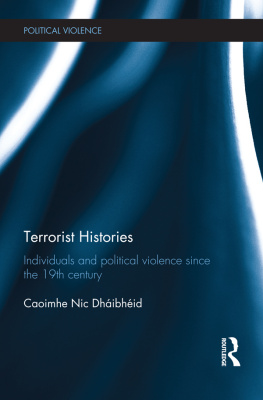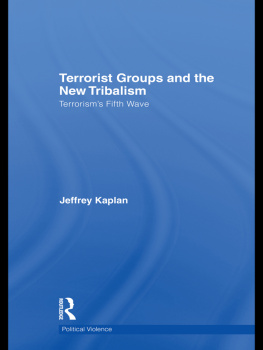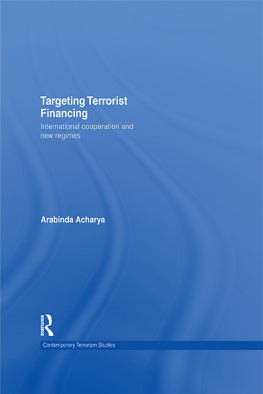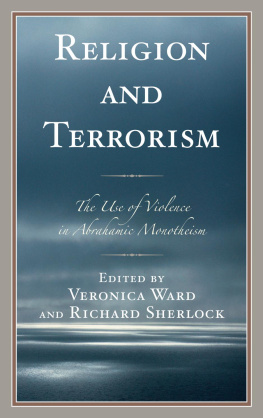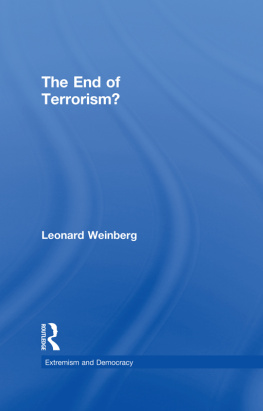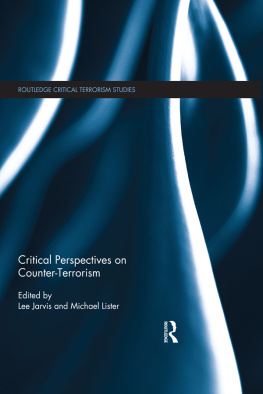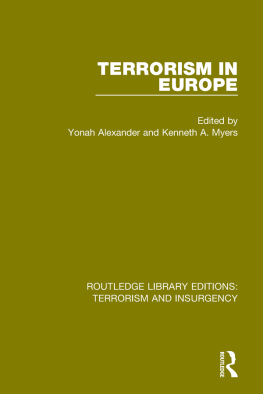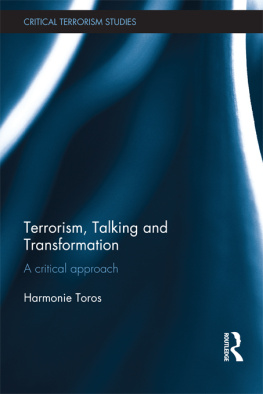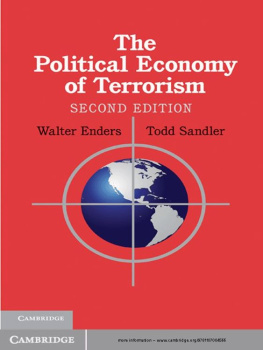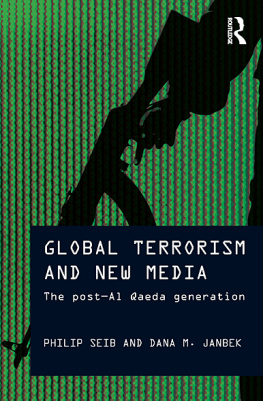Terrorist Histories
This book provides a series of in-depth portraits of men and women who have been labelled terrorists.
This book is a historically minded study of terrorism since the nineteenth century. Through illustrative case studies of nine men and women across a number of distinct historical, geographical and ideological settings, the book provides an illuminating exploration of the complex dynamics underpinning radicalisation, mobilisation and activism within violent organisations from the late 1880s to the twenty-first century. Among the case studies are Russian-born anarchists, French Resistance fighters, extremist right-wing ideologues and so-called eco-terrorists, as well as the more familiar ethno-nationalists in Palestine, Ireland and Northern Ireland. A particular feature of this book is its focus on primary sources; building on archival research, a careful portrait of the whole sweep of a terrorist life is explored, not merely the hot period of active service. The closing chapter of the book reflects on the resonances that emerge across the different case studies, and considers their application to broader understandings of the dynamics of political violence.
This book will be of much interest to students of political violence, terrorism studies, security studies and politics in general.
Caoimhe Nic Dhibhid is Lecturer in Modern History at the University of Sheffield, UK, and author of Sean McBride: A Republican Life (2011).
Political Violence
Series editor: David Rapoport
This book series contains sober, thoughtful and authoritative academic accounts of terrorism and political violence. Its aim is to produce a useful taxonomy of terror and violence through comparative and historical analysis in both national and international spheres. Each book discusses origins, organisational dynamics and outcomes of particular forms and expressions of political violence.
An International History of Terrorism
Western and non-Western experiences
Edited by Jussi Hanhimki and Bernhard Blumenau
Democracy and Terrorism
Friend or foe?
Leonard Weinberg
State Terrorism and Human Rights
International responses since the end of the Cold War
Edited by Gillian Duncan, Orla Lynch, Gilbert Ramsay and Alison Watson
Prisons, Terrorism and Extremism
Critical issues in management, radicalisation and reform
Edited by Andrew Silke
The Psychology of Terrorism
2nd Edition
John Horgan
Victims of Terrorism
A comparative and interdisciplinary study
Edited by Orla Lynch and Javier Argomaniz
Lone-Actor Terrorists
A behavioural analysis
Paul Gill
Understanding Terrorism Innovation and Learning
Al-Qaeda and beyond
Edited by Magnus Ranstorp and Magnus Normark
Evolutionary Psychology and Terrorism
Edited by Max Taylor, Jason Roach and Ken Pease
Understanding Apocalyptic Terrorism
Countering the radical mindset
Frances L. Flannery
Terrorist Histories
Individuals and political violence since the 19th Century
Caoimhe Nic Dhibhid
Terrorist Histories
Individuals and political violence since the 19th century
Caoimhe Nic Dhibhid
First published 2017
by Routledge
2 Park Square, Milton Park, Abingdon, Oxon OX14 4RN
and by Routledge
711 Third Avenue, New York, NY 10017
Routledge is an imprint of the Taylor & Francis Group, an informa business
2017 Caoimhe Nic Dhibhid
The right of Caoimhe Nic Dhibhid to be identified as author of this work has been asserted by him/her in accordance with sections 77 and 78 of the Copyright, Designs and Patents Act 1988.
All rights reserved. No part of this book may be reprinted or reproduced or utilised in any form or by any electronic, mechanical, or other means, now known or hereafter invented, including photocopying and recording, or in any information storage or retrieval system, without permission in writing from the publishers.
Trademark notice: Product or corporate names may be trademarks or registered trademarks, and are used only for identification and explanation without intent to infringe.
British Library Cataloguing-in-Publication Data
A catalogue record for this book is available from the British Library
Library of Congress Cataloging in Publication Data
Names: Nic Dhibhid, Caoimhe, author.
Title: Terrorist histories : individuals and political violence since the 19th century / Caoimhe Nic Dhibhid.
Description: Abingdon, Oxon ; New York, NY : Routledge, 2017. | Series: Political violence | Includes bibliographical references and index.
Identifiers: LCCN 2016022529| ISBN 9781138675483 (hardback) | ISBN 9781315560694 (ebook)
Subjects: LCSH: TerroristsCase studies. | RadicalsCase studies. | TerrorismHistory. | Political violenceHistory.
Classification: LCC HV6430.A1 N53 2017 | DDC 363.325092/2dc23
LC record available at https://lccn.loc.gov/2016022529
ISBN: 978-1-138-67548-3 (hbk)
ISBN: 978-1-315-56069-4 (ebk)
Typeset in Times New Roman
by Wearset Ltd, Boldon, Tyne and Wear
Contents
Thanks to all those who assisted with the researching and writing of this book, especially Mark Currie. His advice, guidance and support were invaluable, all the more so when I doubted this project was ever possible. Charles also provided much helpful feedback. More recently, colleagues at the Department of History at the University of Sheffield have provided a congenial home in which to work, think through and talk about the ideas underpinning this book. Mary Vincent and Phil Withington have been supportive Heads of Department. Andrew Sanders read some chapters, and has always been a loyal comrade. Lastly, my deep gratitude to Colin, for everything.
All errors and omissions are my responsibility alone.
In the preponderance of statistical and quantitative data on the practice of terrorism and political violence, the individuals who participate in terrorist acts are often obscured. Some later achieve a certain fame or notoriety, either by virtue of the levels of violence which are attributed to them or by their apparent reinvention as non-violent political actors; arguably, however, the very exceptionality of these trajectories makes these life stories less helpful in strengthening our understanding of the broader, more generalised pattern of individual engagement with political violence, from initial radicalisation through to disengagement (and, in some cases, re-engagement). The focus on a relatively narrow cast of high-profile terrorist villains, a large part being driven by popular and media attention, results in a somewhat skewed picture; of equal value, arguably, is a more sustained reflection on the lives of lesser-known individuals. This book provides a series of in-depth individual portraits of people who have been at various junctures labelled as terrorists, exploring their journeys from radicalisation to mobilisation to activism to disengagement to, in some instances, re-engagement. These case studies, ranging across geographical and historical locations, offer a further understanding of the range of human experiences that lie behind the rather blunt label of terrorist. The case studies follow a broadly chronological pattern, running from the late nineteenth-century Russian-inflected anarchist tradition to the Islamist extremism of the twenty-first century. In the intervening period, Irish republican and Zionist ethno-nationalism, anti-Nazi resistance, European extreme left-wing political violence, the American radical right, and Northern Irish loyalism are all explored here. To a certain extent, the case studies under consideration in this project encompass the four waves of terrorism delineated by David Rapoport anarchist, anti-colonial, new left and religious and yet, as Rapoport concedes, this conceptualisation should not be interpreted too rigidly, with significant overlap between these categories.1 Moreover, there are some manifestations of political violence which do not appear to fit any of the four waves extreme right-wing ideologies, for example. Nevertheless, this study cautiously suggests that through an in-depth examination of the trajectories towards, within and away from political violence of a number of carefully-selected individuals, an understanding can emerge of some broader patterns which appear through the history of terrorism and politically-motivated violence in the late nineteenth, twentieth and twenty-first centuries. These include the varying processes of radicalisation, the role of technology, the diverse methods of communication and propagandising, the importance of ideology as a binding mechanism in group affiliation, the significance of enemy actions legal, political or military in shaping the precise form political violence takes, and, above all, the personal idiosyncrasies which lie behind any decision to engage in political violence and which fundamentally determine the nature and effect of that engagement on the individuals under consideration.

